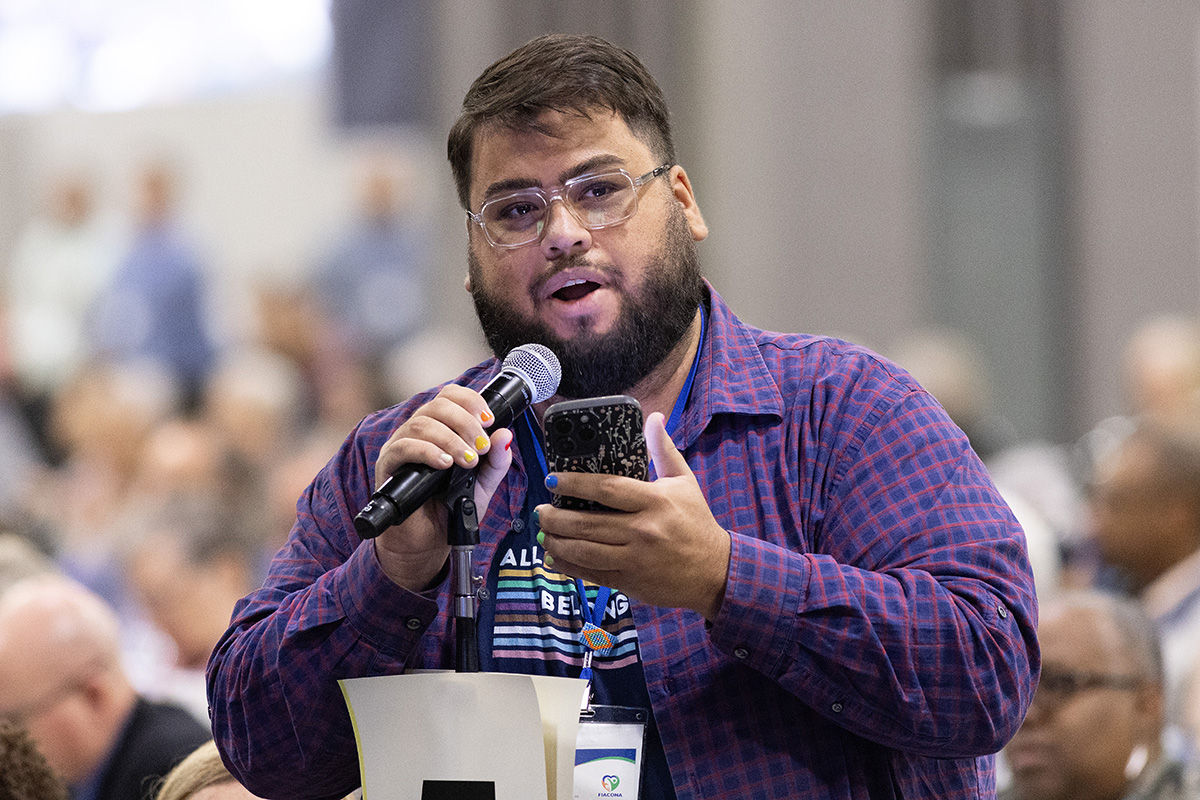Key points:
- The United Methodist Church’s top court ruled on a question about youth membership on the commission that plans General Conference.
- The Judicial Council is on standby throughout General Conference to rule on the legality of the body’s actions or whether they are in line with the denomination’s constitution.
- This marks the first time the Judicial Council has been asked to rule on church law since the legislative assembly began.
The Judicial Council, the denomination’s top court, says General Conference must elect a youth member to the commission that organizes the denomination’s top policymaking assembly.
“If there is no youth representation among the members of the Commission on the General Conference, the General Conference is required to identify, nominate, and elect at least one youth who meets the qualifications set forth,” the Judicial Council ruled in Decision 1497.
The ruling came in response to a question from Ian Urriola, delegate from the Upper New York Conference. After nominations to the General Conference commission, he asked the Judicial Council for a declaratory decision as to the effect and meaning of Paragraph 511.1 in the Book of Discipline, the denomination’s law book.
Paragraph 511.1a says the commission shall consist of 25 members — one person from each U.S. jurisdiction, one person from each of the seven central conferences, one young adult, one youth, the chairperson of the host committee, and 10 additional members. The additional members shall be allocated to reflect the proportionate membership based upon combined clergy and lay membership of the church.
According to the Discipline, in Paragraph 256.3, a youth is defined as a person age 12 to 17 or 18 in the U.S. and age 12 up to age 24 in the central conferences — church regions in Africa, Europe and the Philippines. Each central conference can define how it describes youth.
Paragraph 511.1b says members shall be nominated from the elected delegates to the General Conference.
Subscribe to our
e-newsletter
“In light of Paragraph 511.1a, is it legal to elect a Commission on the General Conference that contains no youth representation?” Urriola asked.
He also asked how the two sections of Paragraph 511.1 can be reconciled “when no youth is elected by General Conference.”
The General Conference then voted to support bringing the question to the Judicial Council.
In answering the question, the Judicial Council noted that General Conference may nominate people from the floor who meet the qualifications for membership.
One of the challenges this General Conference faces is that because of COVID’s disruptions, eight years have elapsed since the last General Conference. Among other things, this means youth delegates elected to serve the 2020 General Conference may no longer be youth.
Commission members also serve eight-year terms and are elected on a staggered basis. This year’s elections will reset that election rotation, with this General Conference electing a class of 2028, who will serve four years, and a class of 2032, who will serve eight years.
The Judicial Council is on standby throughout General Conference to rule on questions raised about the legality of the body’s actions or whether they are in line with the denomination’s constitution.
Usually, General Conference calls upon the church court to rule on multiple questions to settle disputes over church law. But in a mark of how different this year’s General Conference has been, the assembly is already halfway over and this is the first question posed to the church court.
Later this week, General Conference will hold elections for the commission that plans the assembly as well as for the secretary of General Conference, who leads much of that work.
Hahn is assistant news editor for UM News. Contact her at (615) 742-5470 or [email protected]. To read more United Methodist news, subscribe to the free daily or weekly Digests.




